CLAS 353
October 29, 2024
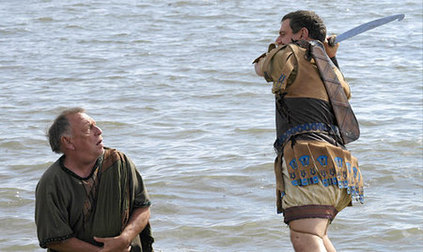
Rome (HBO series, 2005-7; 1st century BCE transition to empire)
(the Roman Senate debates on Caesar's status and ambitions)
https://www.youtube.com/watch?v=K9ahNR19myM
(one of Caesar's soldiers "gets out of line" in Gaul)
https://www.youtube.com/watch?v=-vJTNGH4Ib0
(Pompey beheaded)
https://www.youtube.com/watch?v=k3buhlYVLOs
Examination #2 (Thursday, November 7): Study Guide
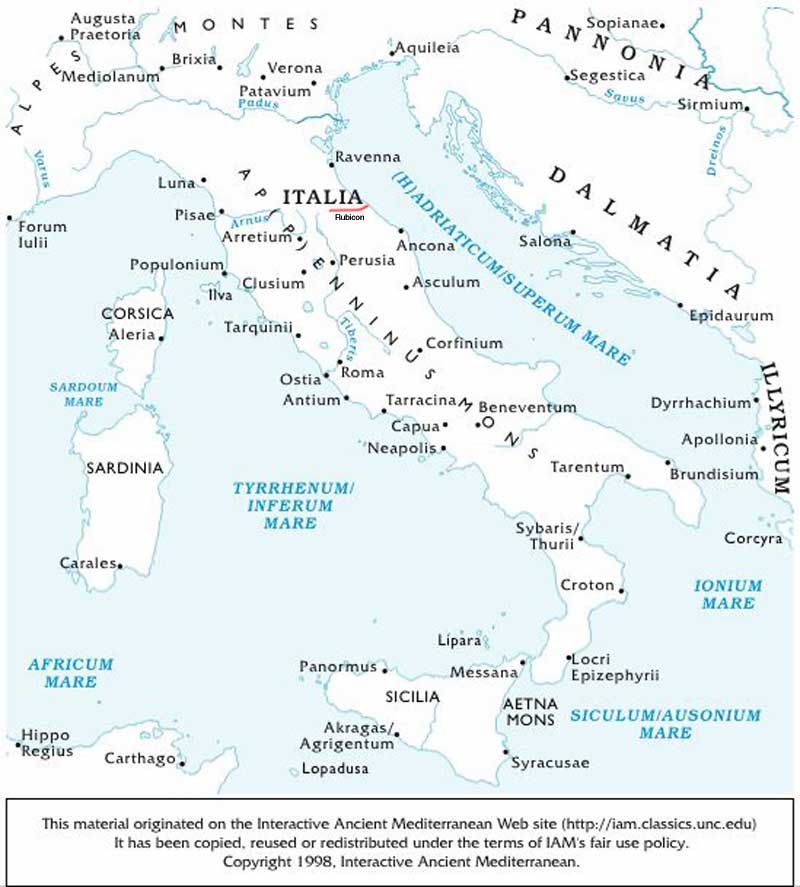
Lucan, Civil War 1 (cont.)

Roma (silver denarius, 136 BCE)
- Rubicon (Gaul/Italy) crossed in January 49 BCE: intervening anthropomorphic Roma, "To what destruction are you rushing . . .?" (1.213); Caesar's only hesitation in epic (1.216-18), but proceeds ("like . . . when a lion sees an enemy approaching, he hesitates, / Lying low in ambush, waiting, gathering his rage . . .", 1.230ff.)
- catalogue of Caesar’s allies (1.434ff.) dwarfed by catalogue of Rome's rejoicing enemies (1.466ff.)
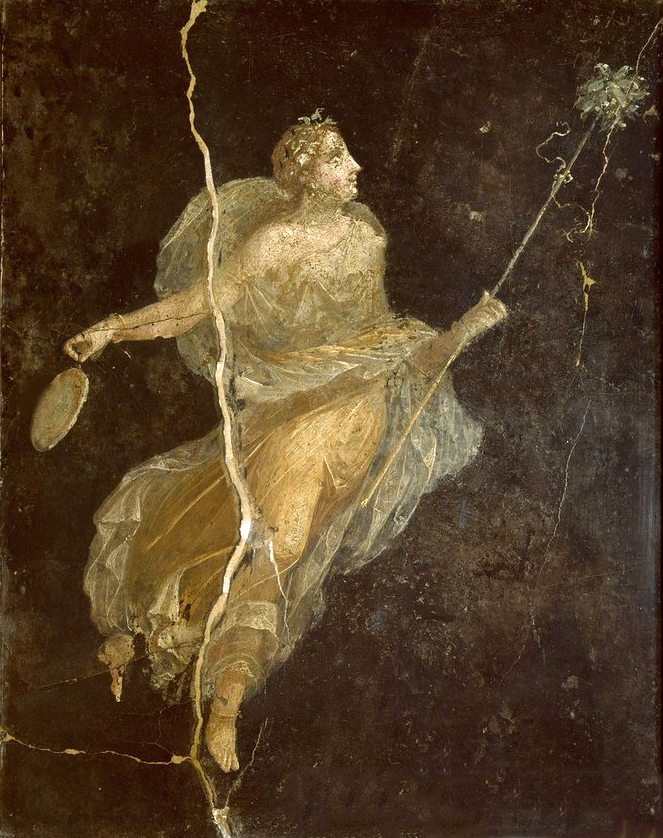
Maenad in silk dress (Pompeii, 1st century CE)
- rumors & panic in Rome (1.563ff.), horrible omens at close of Civil War 1: Arruns's grotesque sacrifice (1.654ff.), prophecies of anonymous matron in terrorized Rome ("Wait! Wait!—Him I recognize, / That headless corpse sprawling across wet sands", 1.735-6)
Civil War 1.713-21 (Figulus the astrologer envisions bleak Roman future)
"War's fury is upon us: and the power of arms
Will overturn every law by force, virtue
Will be redefined as unspeakable crime,
And this madness will carry on for years and years.
And what's the point in begging gods to stop it?
When peace comes, she'll make slaves of us all!
Prolong the endless chains
of evils, Rome,
Draw out the destruction as long as you can—
You're only free now while civil war still rages!
Lucan, Civil War 2-3: preliminaries to battle (Pompey's retreat to Capua & Brundisium; Caesar's campaign in Marseille en route to Spain, 49 BCE )
- narrative flashback: Marius & Sulla (80s BCE), old veteran's memory of horror & carnage; first strongmen to march on Rome (Pompey, Sulla's general; Marius, Caesar's uncle), near-collapse of Republic > past is present
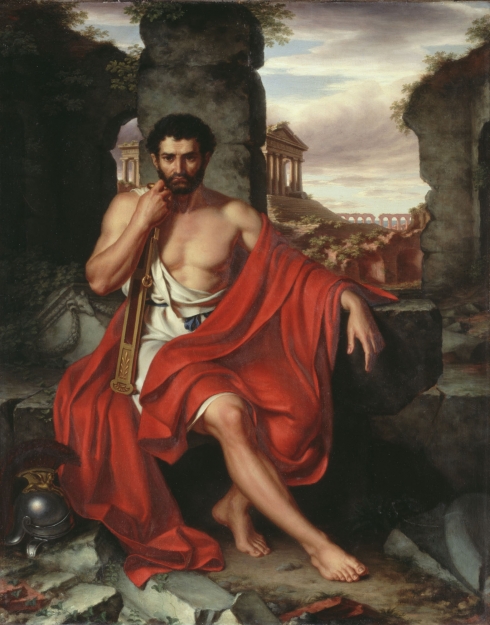
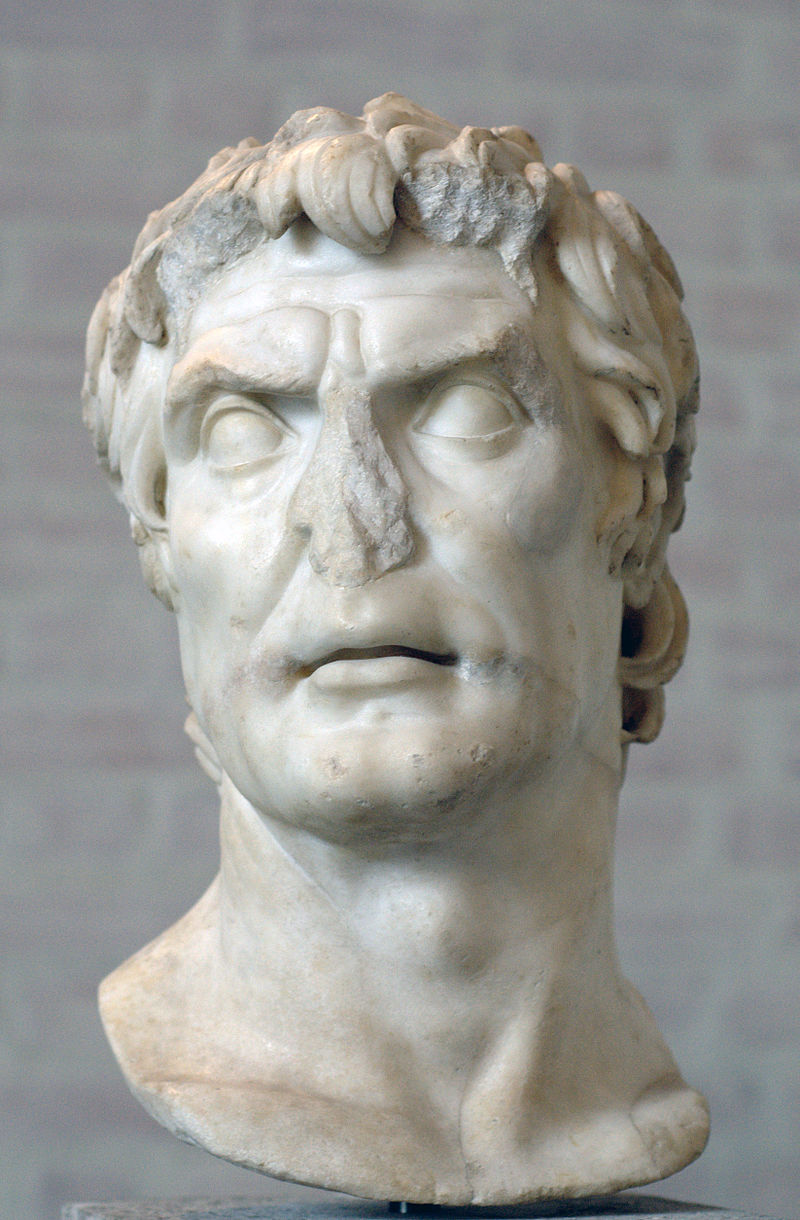
L: Vanderlyn, Marius amid the Ruins of Carthage (1832); R: Bust of Sulla (Augustan era)
Civil War 2.189ff. (Sulla's "victory" in 82 BCE: revenge & the body politic grotesquely mutilated)
". . . After the flesh had started to rot and turn runny
And long time had erased all means of distinction,
Rome's wretched parents came to collect the bits
They recognized and fearfully took them away.
I myself remember wanting to put the decaying face
Of my dead brother on the pyre's forbidden flames.
I wandered through the corpses that Sulla's peace
Had made, picking over the pieces, trying to find
The neck that matched his severed head . . .
. . . After the slaughter the bodies can barely fall,
But stand in a heap and totter, necks hanging
To the side.
Even corpses take part in the killing.
Their headless
trunks smash the living while Sulla
Watches the crime on high, unmoved
For having ordered so many thousands to die . . .
. . . All these horrors await us to suffer again.
And the end of civil strife will be the same."

Roman & Rude, Cato Reading Plato's Phaedo before Comitting Suicide (1835)
- Cato the Younger (95-46 BCE): Marcus Junius Brutus visits mentor ("You have in me an enemy of neither Pompey / Nor Caesar now, but of the victor once war is done, 2.322-3); Cato's dilemma – how does a Stoic engage in irrational war ("imploding universe", 3.332)?; simile of grieving father (Cato): ". . . Rome, I'll never be torn away from you / Before embracing your lifeless body" (3.341-2)
Stoicism > reason as universal principle = discovering what is good & rational; perfect sapiens ("philosopher") dedicated to virtue, search for truth; Stoic ethics emphasize self-reliance, self-sufficiency, freedom from ambition & passion, strength in face of hardship, imperviousness to good/bad fortune, preparation for death
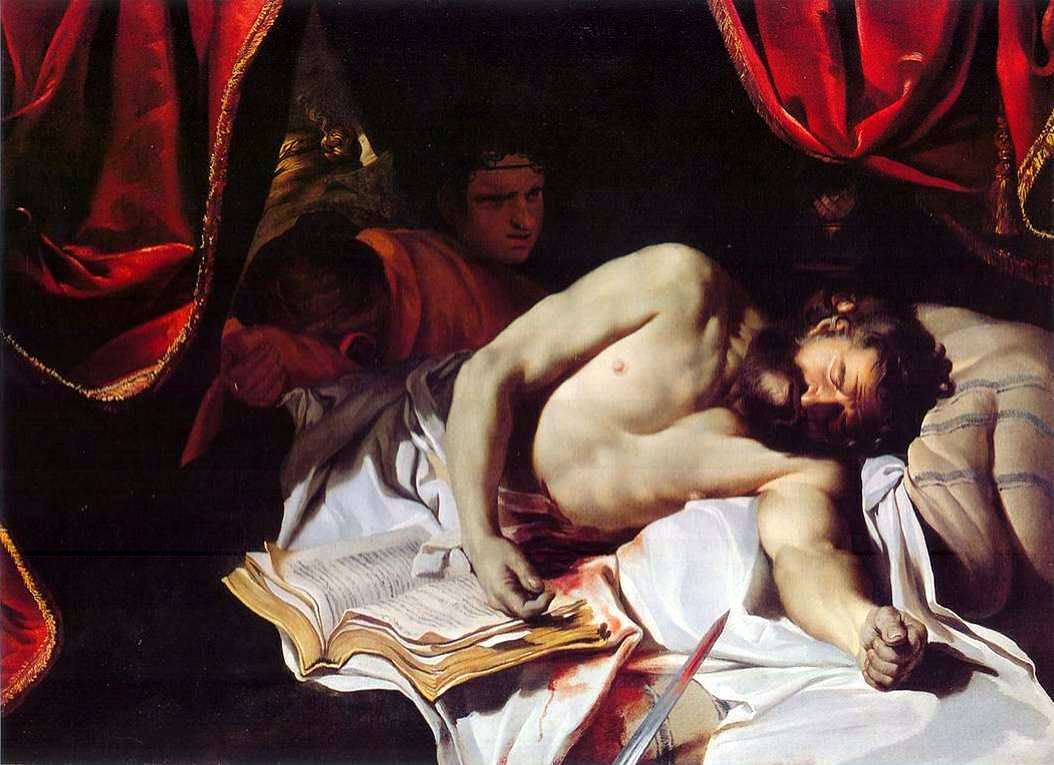
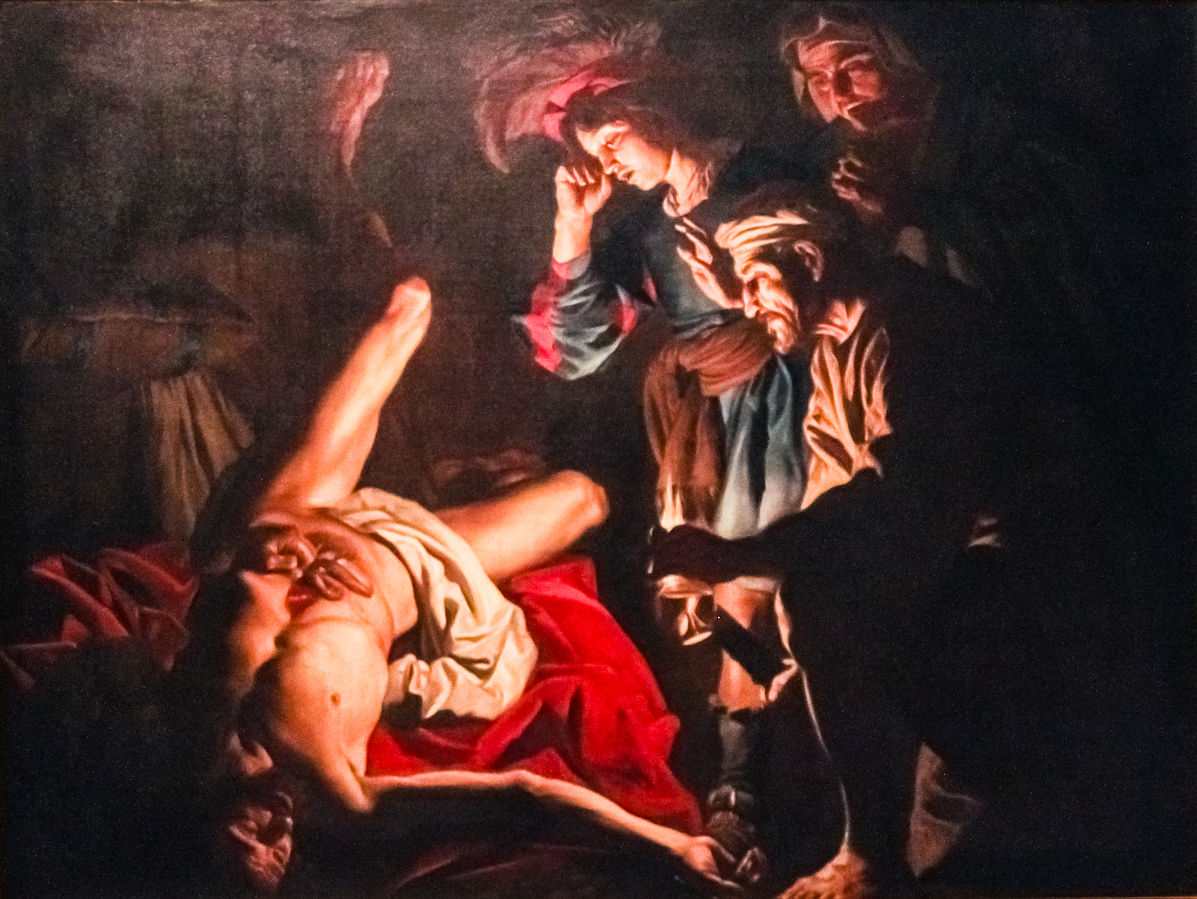
L: Le Brun, Suicide of Cato of Utica (1646); R: Stom, Death of Cato (ca. 1630)
Civil War 2.346-64 (Cato imagines his own devotio; cf. Menoeceus in Thebaid)
"If, consigned to the gods
Of heaven and hell, I alone could pay for us all,
I would. Decius offered his life to the enemy. [Decius Mus, 4th century BCE]
Now let twin armies transfix me in the same way.
Let the Rhine's savage hordes seek me with their spears.
Let me stand in the battle's center and receive
The wounds of the entire war. Let my blood serve
As payment for the people. Let my death atone
For
what penalties the Romans have earned.
Why should people already eager for tyranny perish?
Rush at me with your swords, at me alone,
Me, vain guardian of justice and empty laws.
Only this throat, once slit, will bring peace
And an end to evils. Once I'm dead, would-be
Tyrants won't have a need for further wars.
Why not follow Pompey and the public standards?
Because I know, if Fortune allows it, he too hopes
To rule the world. At least with me in his army
He knows he's not conquering for himself alone."
- Cato's re-marriage to Marcia (anti-wedding/funeral, 2.397ff.)? ("CATO'S MARCIA")
Civil War 2.418-22 (Roman Stocisim embodied)
This was his character,
This stern Cato's unshakeable creed: To seek the mean
And keep the limit. To obey nature. To devote his life
To country. To think he was born for the sake of the world.
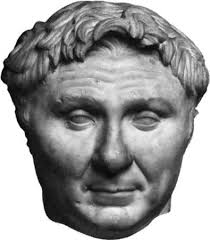
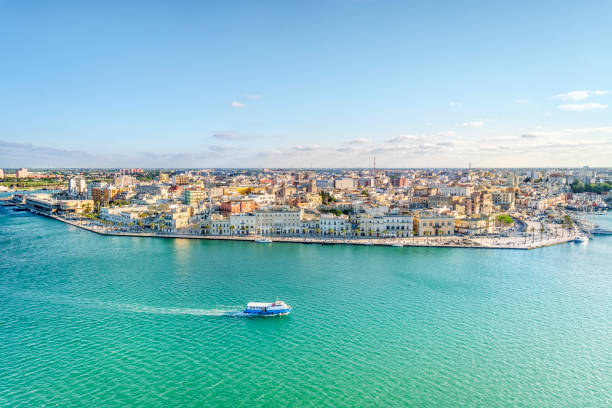
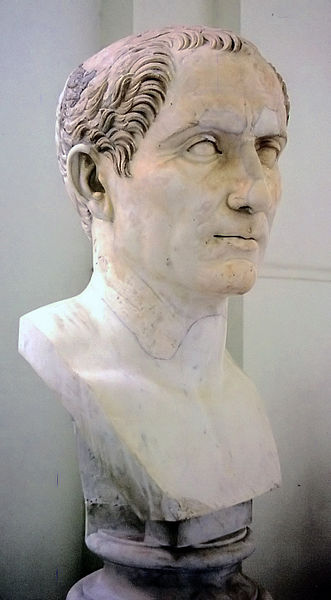
L: Head of Pompey; M: port city of Brindisi today; R: Bust of Julius Caesar
- Pompey at Capua: ineffective speech, 2.570ff.; Caesar's armies marching across Italy > blockade at Brundisium & Pompey's nighttime escape (son Sextus sent to gather allies)
- Civil War 3: Pompey’s departure from Italy (cont.): nightmare as he leaves Italy: cf. end of Aeneid 2 (Lucan's anti-Aeneid)
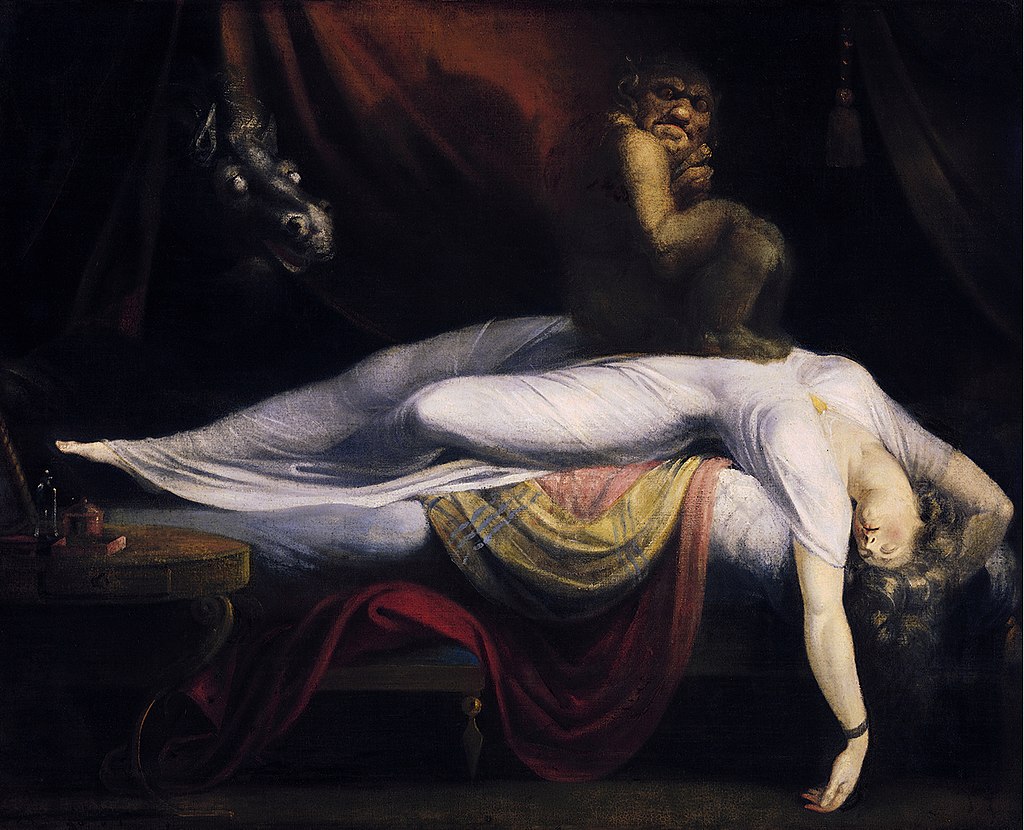
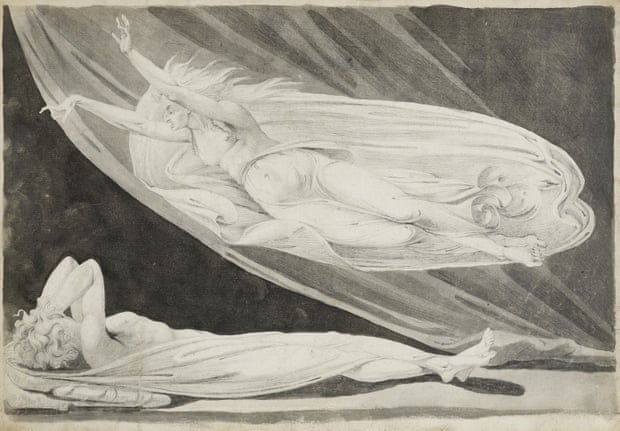
L: Fuseli, The Nightmare (1782); R: Fuseli, Julia Appearing to Pompey in a Dream (1770s)
Civil War 3.20-35 (Julia's ghost appears to Pompey)
"Magnus—
When I was your wife, you led such happy triumphs.
But your fortune changed along with your bed:
Cornelia is cursed to drag her husbands forever [Cornelia, Crassus's wife before she became Pompey's 5th wife]
Into ruin—that whore beside a warm tomb—
Let her hang on your standards for all I care,
And follow you on land and sea, so long as
I'm the one who breaks your troubled dreams, so long
As no time's ever free for you to love. Let Caesar
Hold your days and Julia your nights. Mindless Lethe's
Banks have not erased the memory of my husband,
And the Lords of the Dead have granted me permission
To track you down.
Wherever you wage war
My ghost will follow, stalking through the ranks,
Never letting you forget you're Caesar's son-in-law.
Your sword-arm severs our wedding vows in vain:
For civil war will make you mine."
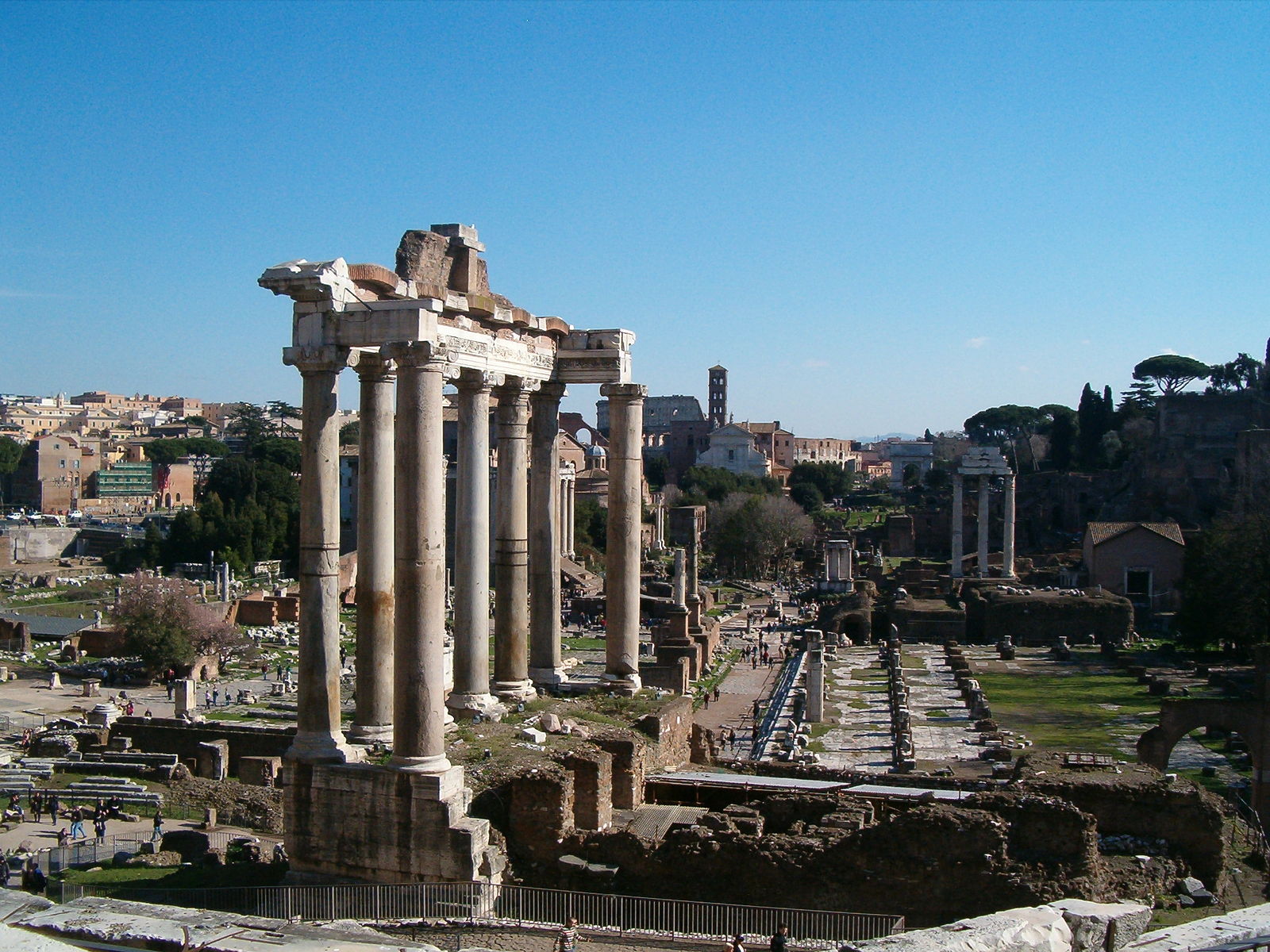
Temple of Saturn (site of Aerarium, Roman Forum)
- Caesar in Rome: heroic tribune Metellus & the treasury ("Rome was made poorer than a Caesar", 3.184)
- Mediterranean region drawn into World War; catalogue of Pompey's allies ("To make sure / Everything fell to fortunate Caesar, Pharsalia / Gave the whole world to conquer in a single stroke", 3.318-20)

- seige at Massilia/Marseilles (Greek colony, ally of Rome, 3.321ff.); first horrific fighting between Massilians ("Greeks") and Caesar's Romans (after Caesar leaves for Spain)
- Massilian ambassadors attempt to broker peace, reaffirm alliance with Rome, heroically reject civil war ("But now you'll pay the price for seeking peace / And learn that no one's safe these days / Unless he fights for Caesar", 3.395-7)
- ekphrasis ("There was a grove . . .", 3.426ff.): Caesar's desecration of scary/secret grove – "know the crime is mine"; "Caesar's / Anger now outweighed the wrath of the gods"; narrator's commentary ("Yet Fortune often guards the guilty / And the gods reserve their rage for an unlucky few")
GROUPS
- grotesque aftermath at Massilia (fall of a city): "How loudly the cries of mothers carried down to the shore. / Many wives embraced Roman corpses by mistake, / Believing their bloated features belonged to husbands. / Wretched fathers wrangled over headless bodies . . ." (3.799ff.)

Site of naval battle at Marseille?












